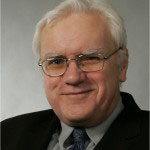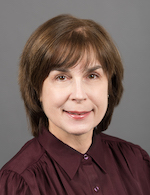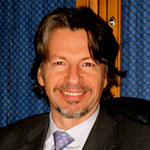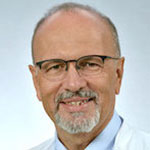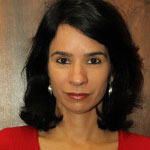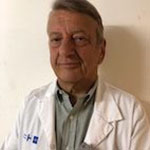Dr. Thierry Calandra – ISF Chair
Thierry Calandra is Professor of medicine and Head of the Infectious Diseases Service at the University Hospital in Lausanne, Switzerland. He received his MD degree from the University of Lausanne, Switzerland and his PhD degree from the University of Utrecht, The Netherlands. He is board certified in infectious diseases and internal medicine.
Thierry is a member of Swiss Academy of Medical Sciences and an honorary life member of the Australasian Society for infectious Diseases. He is serving or has served on the Research Council of the Swiss National Science Foundation, on Program Committees for annual meeting of the European Society of Clinical Microbiology and Infectious Diseases (ESCMID) and of the Interscience Conference on Antimicrobial Agents and Chemotherapy (ICAAC) of the American Society for Microbiology. He is a Past-president or a Past-chair of the Swiss Society for Infectious Diseases, the Infectious Diseases Group of the European Organization for Research and Treatment of Cancer (EORTC), the International Immunocompromised Host Society (ICHS) and the Fungal Infection Network of Switzerland. He also is a former member of the Steering Committee of the Mycoses Study Group (MSG) and a member of the Council of the International Sepsis Forum since 1999.
In 2017, Thierry received the prestigious Award for Excellence in Clinical Microbiology and Infectious Diseases of the European Society of Microbiology and Infectious Diseases (ESCMID), an award that recognizes and rewards an outstanding lifetime contribution in the areas of science, education or professional affairs in clinical microbiology and/or infectious diseases. He also is recipient of the Cloëtta Prize awarded by the Max Cloëtta Foundation for distinguished achievements in medical research. Other honors and awards include research awards from the Swiss National Science Foundation, the Leenaards Foundation, the Swiss Society of Infectious Diseases and the Jürg Tschopp Prize for Life Sciences of the University of Lausanne.
Thierry’s research interests focuses on innate immunity, sepsis, bacterial and fungal infections in critically ill patients and in immunocompromised hosts. Thierry has published close to 300 monographs, book chapters and peer-reviewed articles, which appeared in prestigious biomedical journals such as Nature, Nature Medicine, Nature Reviews Immunology, The New England Journal of Medicine, The Lancet, The Proceedings of the National Academy of Sciences, The Journal of the American Medical Association, The Journal of Experimental Medicine and Clinical Infectious Diseases.
Thierry is a member of many national and international societies, including the Swiss Society for Infectious Diseases, the European Society of Clinical Microbiology and Infectious Diseases, the European Society of Intensive Care Medicine, the European Organization for Research and Treatment of Cancer, the Infectious Diseases Society of America, the American Society for Microbiology, the International Endotoxin and Innate Immunity Society, the International Immunocompromised Host and the Mycoses Study Group Education and Research Consortium.





